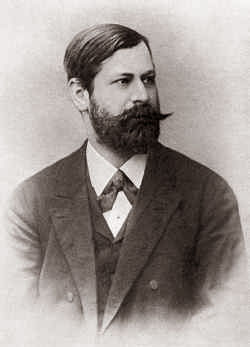Originally published in Vanguard, May 1988 Print
FREUDIANISM SLIPS
TOM ACTON

Sigmund Freud
PROFESSOR HANS EYSENCK is probably best known to many Nationalists for his researches into the controversial area of racial differences in intelligence. However, as a former Professor of Psychology at the University of London, Eysenck is one of Britain's leading psychologists. His writings are not limited to race and intelligence, but cover a wide range of topics. One volume that will, be of interest to many Nationalists is The Decline and Fall of the Freudian Empire, a damning indictment of Freudian theories of psychoanalysis.
Although the lay public tends to think of Freud and psychoanalysis whenever the terms psychology and psychiatry are mentioned, Eysenck shows that Freudianism is held in increasingly low esteem among professional psychologists and psychiatrists. Various other schools of thought, such as behaviorism, are coming to the fore leaving Freudianism as one of the odder items in history's dustbin.
Freudianism has in truth never been anything other than a pseudo-science. Freud's reputation rested largely on his own accounts of a small number of case-studies where he performed 'wonder cures' on mentally disturbed people, yet those case notes reveal that he often never made any proper study of his patient, never considered explanations of neurotic behaviour other than those occuring in psychoanalitic theory, never did any follow-up study of his patients after their 'cures', and never conducted clinical tests on his theories.
To this day Freudian psychologists are still loathe to have Freud's theories put to any sort of scientific test. As Eysenck explains psychoanalysis never holds out the prospect of a quick cure – it may be necessary to visit an expensive analyst a couple of times a week for many years to be 'treated', and by strange co-incidence the people that Freudianism claims to be best able to cure are those on high incomes who can afford such treatment!
The Oedipus complex, anal personalities, Freudian slips and dream interpretation – all the fundamental concepts of Freudianism are examined by Eysenck, and remorselessly torn to shreds. The important influence of Freud's own life and personality on the development of his views is examined by Eysenck, and the interesting possibility that an addiction to cocaine may have influenced him is discussed. Yet this is no argument ad hominem, Freudianism itself is judged on its merits – judged and found wanting any merits whatsoever.
Freud was also a plagiarist, claiming insights into the human condition as his own, when in fact they were borrowed from others ranging throughout the centuries from Plato to Schopenhauer, Kierkegaard and Nietzsche. As Eysenck damningly puts it, what was true in Freudianism was not original, and what was original was not true.
Next to Karl Marx, Freud has the distinction of bring the nineteenth century German Jew who has most influenced twentieth century European thought. As Eysenck points out the contemporary development of Freudianism has much in common with that of Marxism. Let his analysis be an epitaph for both: -
"The influence of Marx has been rather similar to that of Freud, not only because he too based his whole case on 'interpretations' and discounted direct evidence, but also because very few of the people who now claim to hold his views have ever bothered to read his original contributions, or look at the criticisms, however cogent, of those views. Indeed present-day Marxists often hold views exactly opposite to those of Marx and Lenin, as in the question of the inheritance of intelligence. Much the same is true of Freud. His followers too, have created a 'climate of opinion' which deviates markedly from what he himself would have approved. Nevertheless, there is traceable ancestry, and Freud cannot be completely absolved of guilt."